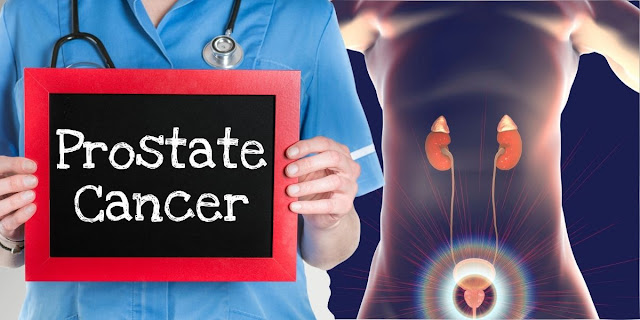 |
| Busting Myths: The Truth About Common Men's Health Concerns |
In today's world, many misconceptions and myths surround men's health, leading to confusion and misinformation. It's crucial to separate fact from fiction to ensure men can prioritize their well-being effectively. This article will debunk common myths and highlight essential men's health concerns.
Common Myths About Men's Health
 |
| Myth 1: Men don't need to prioritize their mental health |
Myth 1: Men don't need to prioritize their mental health
Contrary to popular belief, men's mental health is just as important as their physical well-being. Ignoring mental health issues can have serious consequences and impact overall quality of life.
1. It's essential for men to openly discuss their emotions and seek support when needed.
2. Avoiding mental health concerns can lead to more severe issues later on.

Myth 2: Prostate cancer only affects older men

Myth 2: Prostate cancer only affects older men
While prostate cancer is more prevalent in older men, it can still develop in younger individuals. Regular screenings and early detection are key in effectively managing this disease.
1. Men should start discussing prostate health with their healthcare provider around age 40, especially if there's a family history of the disease.
1. Promoting awareness and understanding the risk factors associated with prostate cancer is crucial.

Myth 3: Testosterone supplements are a quick fix for low energy and libido

Myth 3: Testosterone supplements are a quick fix for low energy and libido
Many believe that testosterone supplements are a cure-all for low energy and libido in men. However, these supplements may not always be the answer and can have potential side effects.
1. It's important to consult a healthcare professional before considering testosterone supplementation.
2. Lifestyle changes, such as exercise and a balanced diet, can also boost energy levels and improve libido naturally.

Myth 4: Men don't need to be concerned about skincare

Myth 4: Men don't need to be concerned about skincare
Skincare is often associated with women, but men can benefit greatly from incorporating a skincare routine into their daily regimen. Proper skincare can help prevent premature aging and maintain healthy skin.
1. Men should use sunscreen daily to protect their skin from harmful UV rays.
2. Simple steps like cleansing and moisturizing can make a significant difference in overall skin health.

Myth 5: Although I snore a lot, it's not a huge concern because a lot of people do

Myth 5: Although I snore a lot, it's not a huge concern because a lot of people do
While snoring by itself is not always an issue, if it is coupled with other symptoms like weariness during the day, you may have sleep apnea. Although anyone can develop sleep apnea, males are two to three times more likely than women to have it, according to the Mayo Clinic.
"Sleep apnea can be fatal if left untreated. It also puts you at risk for heart problems, high blood pressure, and other ailments, among other detrimental long-term impacts on the body and psyche, according to Dr. Julsen. It's crucial to let your doctor know if you frequently feel exhausted during the day or if you have trouble falling asleep.

Myth 6: Until I'm 55 or older, I don't need to see a doctor regularly

Myth 6: Until I'm 55 or older, I don't need to see a doctor regularly
For men of all ages, routine examinations are crucial, even if you feel well. During these examinations, it is possible to screen for cancer and obtain blood tests that can reveal information about the health of your kidneys, liver, and other organs.
Visiting your primary care physician regularly is not just about getting checked for health issues, but also about building a lifelong connection that will benefit you both.
"Your lifestyle decisions made in your 20s and 30s regarding nutrition, exercise, and other aspects will impact your overall well-being when you're 65," says Nicholas Strasser, DO, a sports medicine, orthopedics, and osteopathic physician at MultiCare Rockwood Clinic. "As you age and your health goals change, your primary care provider can work with you to create a personalized health plan."

Myth 7: I experienced a sports injury, but it will heal on its own over time

Myth 7: I experienced a sports injury, but it will heal on its own over time
An over-the-counter pain reliever, rest, ice, and elevation can sometimes be used to treat sports injuries. Acute injuries, however, frequently require medical attention. What defines an acute thing? These injuries typically occur suddenly, such as when you fall, hit someone else, or twist a joint.
In the first place, we can ensure that there isn't any other major condition, such as a stress fracture, which could compromise your long-term functioning if left untreated," Dr. Strasser states. "Two, we can look into the specific motion or mechanism that resulted in the injury and try to fix that to prevent future injuries."

Myth 8: Erectile dysfunction isn't a major health concern, and, it's only happened to older men

Myth 8: Erectile dysfunction isn’t a major health concern, and it only happens to older men
Older men are indeed more likely to experience erectile dysfunction, or the inability to achieve and sustain an erection. But in males as young as forty, it can happen. A vascular issue, sometimes referred to as a blood flow problem, is one of the most common reasons for erectile dysfunction.
According to Dr. Strasser, "erectile dysfunction may be an indication of an underlying cardiovascular condition, such as heart disease or hypertension." "Therefore, it's critical that you speak with your doctor if this is occurring so that you can jointly assess your general health."
Conclusion
Dispelling myths about men's health is essential for promoting overall well-being and longevity. By understanding the truth behind common misconceptions, men can make informed decisions about their health and take proactive steps toward a healthier future. Remember, prioritizing self-care and seeking professional guidance when needed are crucial aspects of maintaining optimal health.
Busting Myths: The Truth About Common Men's Health Concerns - FAQs
What are some common myths about men's health?
Common myths about men's health that will be addressed in this article include: 1. Regular check-ups aren't necessary until age 55 or older. 2. Testosterone replacement therapy is safe and beneficial for everyone experiencing low testosterone levels. 3. Sports injuries heal on their own without proper medical attention. 4. Prostate-specific antigen (PSA) tests are unnecessary and lead to overdiagnosis. 5. Erectile dysfunction primarily affects older men. 6. Consuming five servings of fruits and vegetables per day is sufficient for men's health needs. 7. Men are more likely to get prostate cancer than any other form of cancer. 8. Men are better drivers than women. 9. Hair loss is determined exclusively by genetics inherited from the maternal side. 10. Men should consume the same amount of fruits and vegetables as women due to similar health risks
How will this article benefit me if I am a man in good health?
By dispelling myths and providing accurate information, this article can help you make informed decisions about your health, understand potential risks, and maintain your well-being proactively.
Why don't men take care of their health?
there are several reasons why men may not take care of their health. These include 1. Fear or embarrassment about seeking medical care, particularly for sensitive issues like erectile dysfunction or mental health concerns. 2. Social and cultural expectations of masculinity discourage men from seeking help or admitting vulnerability. 3. Lack of access to supportive social structures and health care services that are tailored to men's needs. 4. Unhealthy habits like smoking, excessive alcohol consumption, and poor diet and exercise habits. 5. Belief in common myths and misconceptions about men's health may lead to delayed or inadequate care. It's important to note that these factors are complex and multifaceted, and may vary depending on individual circumstances and cultural contexts. However, addressing these issues and promoting awareness of men's health concerns can help encourage men to prioritize their well-being and seek appropriate care when needed.
4. What health issues only affect men?
Some health issues specifically affecting men include: 1. Erectile dysfunction (ED) 2. Premature ejaculation 3. Testosterone deficiency syndrome 4. Prostate and testicular cancer 5. Higher incidence of heart disease, especially in younger males 6. Depression and anxiety, which may manifest differently in men 7. Engagement in risky behaviors, such as excessive alcohol consumption and unsafe driving practices 8. Lower life expectancy compared to women is partly attributed to biological, ethnic, and sociocultural factors These issues are influenced by various factors, including biology, lifestyle choices, and societal norms. Addressing these health concerns requires understanding the unique aspects of men's health and encouraging men to adopt healthier lifestyles and seek timely medical care.
Why do men have more health problems?
men have more health problems due to various factors, including: 1. Higher incidence of risky behaviors, such as excessive alcohol consumption and smoking. 2. Biological factors, such as a higher risk of heart disease and certain cancers. 3. Reluctance to seek medical care, often due to fear, embarrassment, or societal expectations of masculinity. 4. Lack of access to supportive social structures and health care services that are tailored to men's needs. 5. Unhealthy habits like poor diet and exercise habits. 6. Belief in common myths and misconceptions about men's health may lead to delayed or inadequate care. It's important to note that these factors are complex and multifaceted, and may vary depending on individual circumstances and cultural contexts. However, addressing these issues and promoting awareness of men's health concerns can help encourage men to prioritize their well-being and seek appropriate care when needed.
